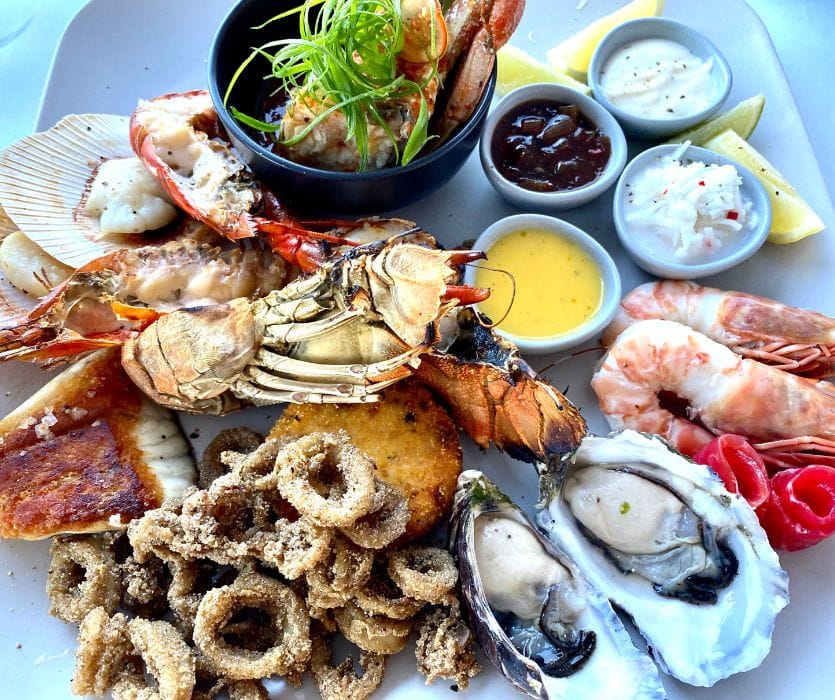God forbid we are just told to eat something good for us. No, it’s never that easy. Can you scream omega fatty acid and mercury at the same time?
Here’s what I gathered: fish is good for you because it contains omega fatty acids that can reduce the risk of heart failure and stroke, plus it can help brain development in the baby. Yay! But wait! Fish can also be high in mercury which can cause problems with cognitive development in unborn children. Boo! Although, theoretically, if both were true, wouldn’t we all have average kids because the omega acid would cancel out the mercury? Guess not.
Updated Guidelines for Pregnant Women
In 2017, the U.S. Food and Drug Administration (FDA) and the U.S. Environmental Protection Agency (EPA) issued revised advice regarding fish consumption for pregnant women, women who may become pregnant, breastfeeding mothers, and parents of young children. The American College of Obstetricians and Gynecologists (ACOG) encourages following these updated recommendations. (It's helpful when everyone agrees.)
For Pregnant and Breastfeeding Women:
- Eat 2-3 servings per week (8 to 12 ounces total) of a variety of fish from the "Best Choices" category
- Limit consumption to 1 serving per week (no more than 6 ounces) of fish from the "Good Choices" category, such as albacore (white) tuna
- Completely avoid fish with the highest mercury concentrations
- Check for local advisories when eating fish caught by family and friends; if no advisory exists, limit to one serving per week and avoid other fish that week
For Children:
- Provide 2 servings per week from the "Best Choices" list
- Serving sizes vary by age: 1 ounce (ages 1-3), 2 ounces (ages 4-7), 3 ounces (ages 8-10), and 4 ounces (age 11+)
Why These Guidelines Matter
Understanding both the benefits and risks of fish consumption during pregnancy helps you make informed decisions about your diet.
Benefits of Fish Consumption:
- Provides essential omega-3 fatty acids (DHA and EPA) that support brain development
- Supplies important nutrients like iron, iodine, choline, vitamin B12, and selenium
- Moderate scientific evidence shows fish consumption during pregnancy can help cognitive development
- May provide heart health benefits as part of a healthy eating pattern
- Supports immune system development in children through iron and zinc
- Helps with baby's spinal cord development through choline
- Associated with decreased risk of hip fractures, obesity, and colon/rectal cancers
Mercury Concerns:
- Mercury is a naturally occurring metal that increases due to industrial pollution
- High mercury exposure during pregnancy can threaten both maternal and fetal health
- Babies exposed to mercury in the womb may experience:
- Severe nervous system damage
- Brain damage
- Learning disabilities
- Hearing loss
- Mercury can build up in the bloodstream over time with regular consumption of high-mercury fish
- Some popular fish (tuna, swordfish, shark) contain higher mercury levels
Safe Fish Choices
Here are the fish that are safest to eat and which ones to avoid completely according to the FDA Guidelines.
Best Choices (eat 2-3 servings per week):
🟢 Anchovy
🟢 Atlantic croaker
🟢 Atlantic mackerel
🟢 Black sea bass
🟢 Butterfish
🟢 Catfish
🟢 Clam
🟢 Cod
🟢 Crab
🟢 Crawfish
🟢 Flounder
🟢 Haddock
🟢 Hake
🟢 Herring
🟢 Lobster, American and spiny
🟢 Mullet
🟢 Oyster
🟢 Pacific chub mackerel
🟢 Perch, freshwater and ocean
🟢 Pickerel
🟢 Plaice
🟢 Pollock
🟢 Salmon
🟢 Sardine
🟢 Scallop
🟢 Shad
🟢 Shrimp
🟢 Skate
🟢 Smelt
🟢 Sole
🟢 Squid
🟢 Tilapia
🟢 Trout, freshwater
🟢 Tuna, canned light (includes skipjack)
🟢 Whitefish
🟢 Whiting
Good Choices (eat 1 serving per week):
🟡 Bluefish
🟡 Buffalofish
🟡 Carp
🟡 Chilean sea bass/ Patagonian toothfish
🟡 Grouper
🟡 Halibut
🟡 Mahi mahi/dolphinfish
🟡 Monkfish
🟡 Rockfish
🟡 Sablefish
🟡 Sheepshead
🟡 Snapper
🟡 Spanish mackerel
🟡 Striped bass (ocean)
🟡 Tilefish (Atlantic Ocean)
🟡 Tuna, albacore/ white tuna, canned and fresh/frozen
🟡 Tuna, yellowfin
🟡 Weakfish/seatrout
🟡 White croaker/ Pacific croaker
Avoid Completely:
🔴 King mackerel
🔴 Marlin
🔴 Orange roughy
🔴 Shark
🔴 Swordfish
🔴 Tilefish (Gulf of Mexico)
🔴 Tuna, bigeye
Bottom Line
Following these guidelines means you can enjoy all the brain-boosting, heart-healthy benefits of fish without worrying about mercury exposure for you or your baby. It really comes down to picking the right fish and sticking to the recommended amounts. If you're ever unsure about what's safe, just check with your doctor or midwife.
Also check out: Can I Eat Sushi While Pregnant?




Leave a Comment